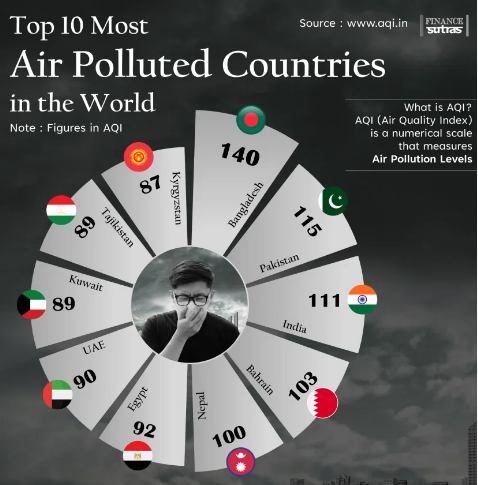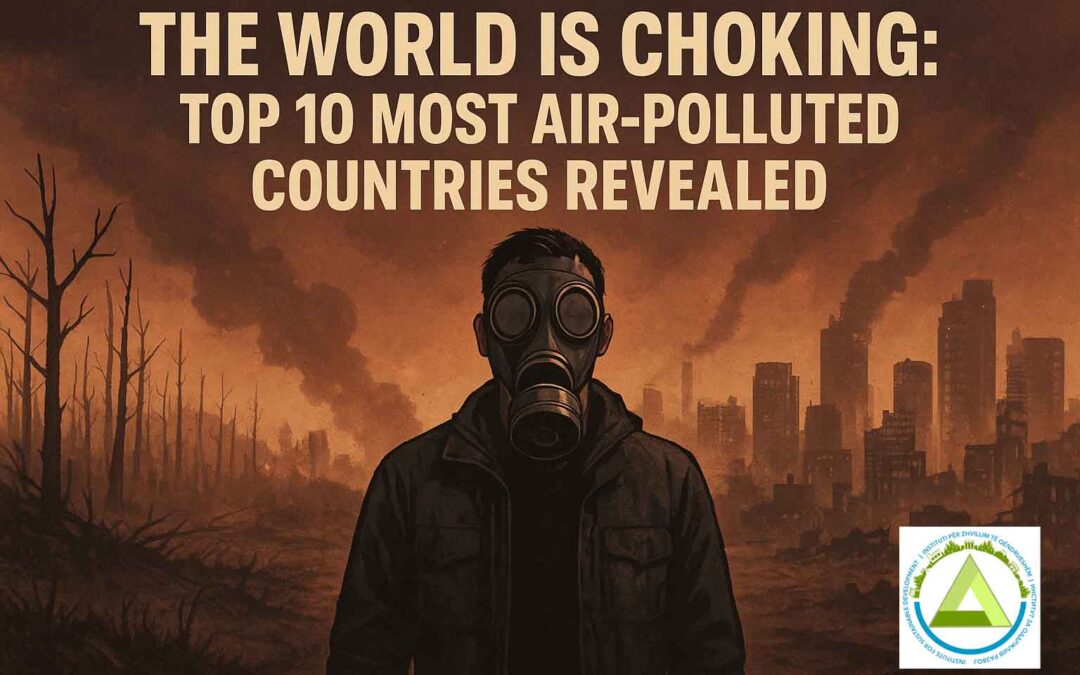Tetovo, North Macedonia, – The world is quite literally choking. Across continents, billions of people wake up every day to air so thick with pollution that it threatens their health, their future, and even their lives. New data reveals the Top 10 most air-polluted countries, exposing a crisis that transcends borders and demands urgent global attention. What was once viewed as a distant environmental issue has now become a full-scale public health emergency.
| Rank | Country | AQI |
|---|---|---|
| 1 | Bangladesh | 140 |
| 2 | Pakistan | 115 |
| 3 | India | 111 |
| 4 | Bahrain | 103 |
| 5 | Nepal | 100 |
| 6 | Egypt | 92 |
| 7 | UAE | 90 |
| 8 | Kuwait | 89 |
| 9 | Tajikistan | 89 |
| 10 | Kyrgyzstan | 87 |
In some cities, like Delhi, breathing the air for just one day has been compared to smoking 10–15 cigarettes. Imagine a child, an elderly person, or a pregnant mother inhaling poison every single second of their lives.
The human cost is catastrophic. Seven million lives are lost every year due to air pollution, and more than two-thirds of these deaths are caused by heart attacks and strokes triggered by dirty air. Millions more live with chronic respiratory problems, reduced life expectancy, and declining quality of life.
“Silent killer” is present in the North Macedonian sky
Experts warn that this crisis is not just about the environment—it is a direct assault on human health, economies and our future. Dirty air seeps silently into homes, schools, and workplaces, sparing no one.
North Macedonia is no exception to this global air pollution crisis. Cities like Tetovo, Skopje, and Bitola have repeatedly ranked among the most polluted in Europe during winter months, with smog levels often exceeding EU safety standards by several times. This pollution stems largely from outdated heating systems, uncontrolled industrial emissions and dense traffic in urban centers.
North Macedonia government must adopt a Clean Air Strategy with strict emission limits, renewable energy, clean heating, green spaces, and better public transport. Without action, air pollution will harm health, cost lives and slow EU integration.
At the Institute for Sustainable Development (ISD), we believe this is a wake-up call for world leaders, policymakers, and ordinary citizens. This is a crisis that requires stricter emission standards for industries and vehicles, massive investments in clean energy and green infrastructure, and public awareness campaigns so people understand the danger in the very air they breathe.

“Clean air is not a privilege; it is a fundamental human right. To ignore this crisis is to gamble with humanity’s future,” experts emphasize.
We must act now—because with every passing moment, the air grows heavier, the cities grow darker, and the toll on human lives grows more unbearable.
Link:
https://www.who.int/data/gho/data/themes/air-pollution/who-air-quality-database

